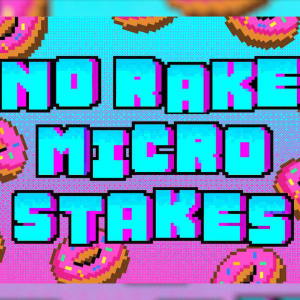When do we use these types of bet?
- In terms of river play, these are similar looking bets with opposite functions.
A block-bet on the river is a small bet with a marginal hand, made in an attempt to stop your opponent raising.
A bet-to-induce is a small bet made with a very strong hand made hoping your opponent will re-raise, either as a bluff or for value with a worse hand.
Use caution with your river block-bets
You should use river block-bets with caution – most of the time the reason cited for making block-bets is flawed. It’s a play with a deeper basis in psychology than maths. Usually it is going to be better to size your river bets based on your opponent’s range, rather than the strength of your hand. By betting small because your hand is weak, you are giving away information and may open yourself up to becoming exploited.
Try to balance these type of bets.
You will need to balance your block-betting range with bets-to-induce to avoid becoming exploitable. If you were to make your bet-sizing dependant on villain’s range rather than your hand, your range for betting small on the river would automatically be balanced. I.e if villain’s range is weak you bet small regardless of whether you have a monster or a weak made hand going for thin value.
Block bets on the flop/turn possibly make a little more sense in general from a strategical point of view – but are still based on the psychological principle that your opponent is less likely to raise after you make a small bet. The idea is that you can bet small on the flop/turn to set your own price for your drawing hands. If you check your opponent may decide to fire a larger bet making the situation less profitable.
Example:
Effective stacks are 50bb. You are in the CO with 10j and open raise to 3bb. BU calls. SB folds. BB folds.
The flop is k52 Hero bets 5bb into the 7.5bb pot. BU calls.
(This is a good board to cbet as a bluff. This opponent is tight and will be folding anything that isn’t a strong made hand. When he calls you think it likely he has a Kx or better.)
The turn is 3. Hero bets 5bb into the 17.5bb pot. BU calls.
What does this mean? You’ve turned one of your draws, but you’ve decided you can’t necessarily semi-bluff here due to your opponent’s flop-calling range being very tight. Remember, semi-bluffs need both fold-equity and pot-equity to be profitable, and here you have virtually no fold equity. However, you don’t necessarily want to fold your flush-draw.
Unfortunately the shallower stacks mean less implied odds. Given your estimated 18% equity you are going to need roughly 4.5:1 in implied odds. Let’s imagine you check and villain bets full pot for maximum protection. If you stack villain on the river 100% of the time you are only going to be getting 3.4:1 in implied odds (2:1 in direct pot odds). Mathematically you would have to check-fold.
What if you can use a psychological trick to make villain invest less on the turn? Some opponents may be intimidated by a small bet in this particular spot and decide to just smooth-call rather than raise. Assuming this is the case with this particular opponent it is possible to turn a non-profitable situation into a profitable one.
There are some issues to be aware of however. Assuming your opponent would just flat the hands he would’ve checked back anyway and raise all hands he would have bet with, your block bet is just burning money. If your block-bet gets raised, most of the time you will still have to fold anyway and you end up losing more than you would have by just check-folding.
Conclusion:
Whether a block-bet is profitable or not depends largely on psychological factors – how is your opponent going to respond? Some players may respond very poorly to block-bets. Others may see them for what they are and play perfectly against them, in which case it might be better to not block-bet at all.


